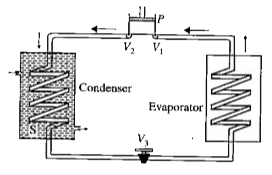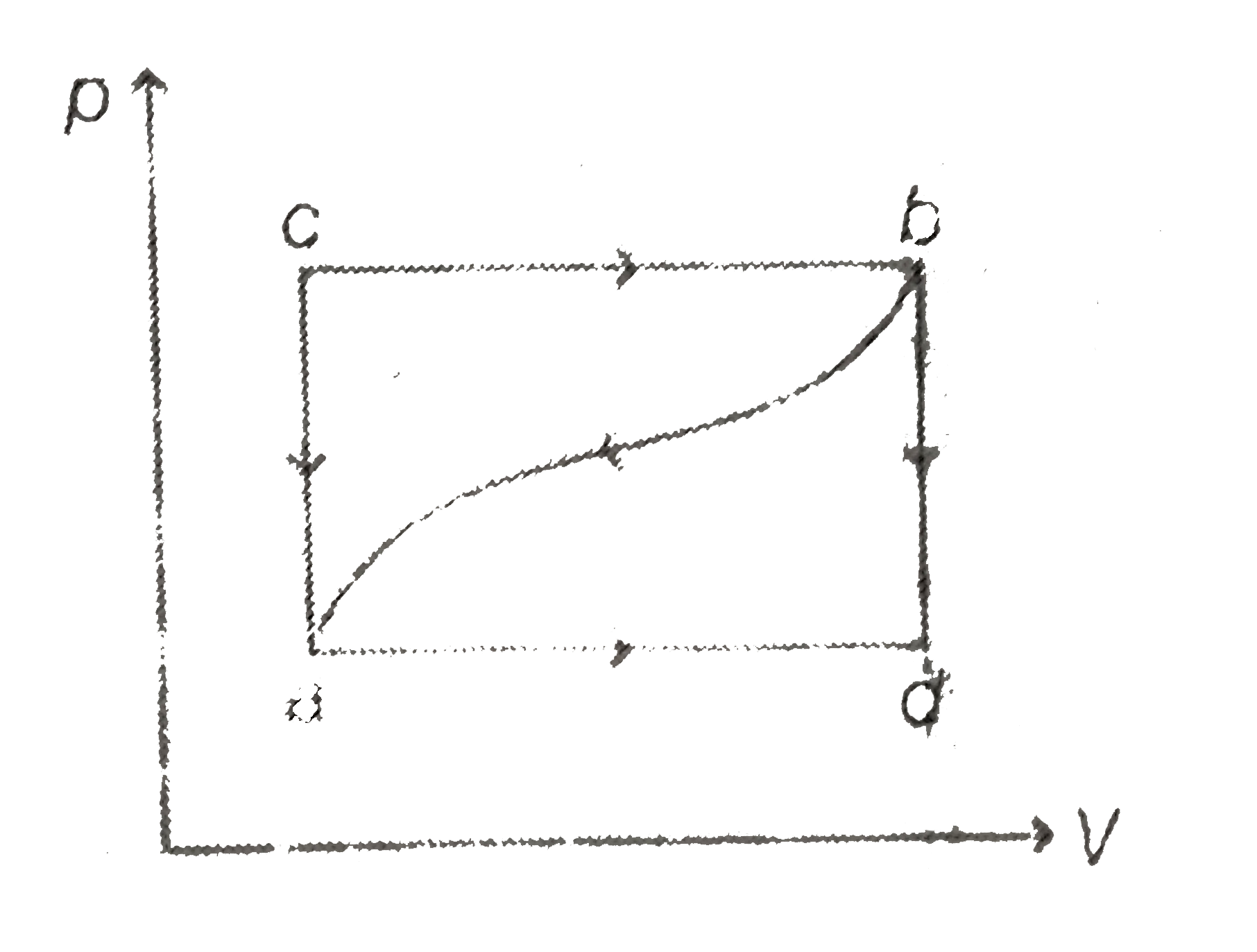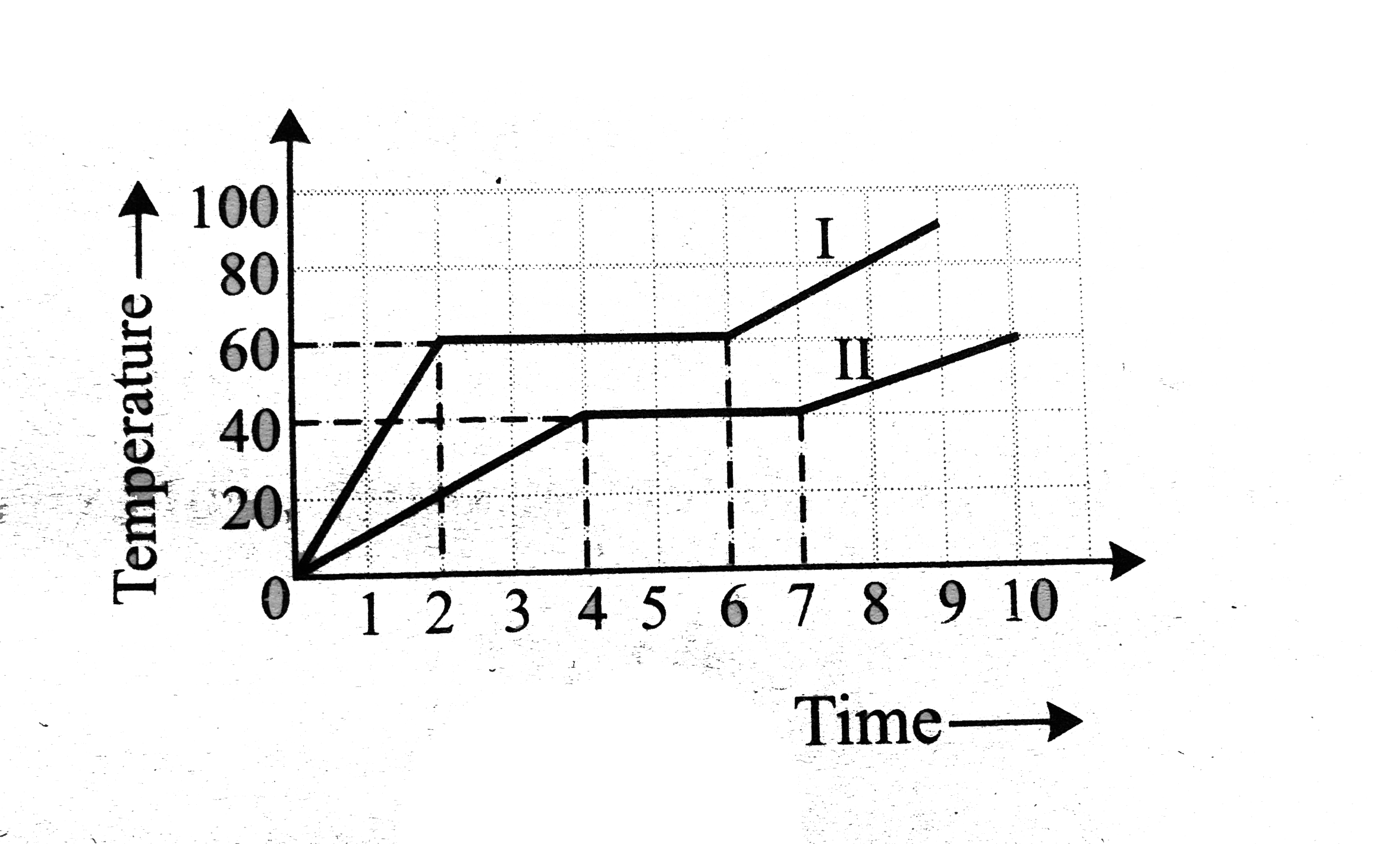Although heat is a path function but heat absorbed by the system under certain specific conditions is independent of path. What are those conditions ? Explain.
The two condition under heat becomes independent of path are
(i) When volume remains constant.
(ii) when pressure remains constant.
Topper's Solved these Questions
- THERMODYNAMICSBOOK - VMC MODULES ENGLISHCHAPTER - THERMODYNAMICSEXERCISE - LEVEL-0 (SHORT ANSWER TYPE-I (2 MAKRS))
7 Videos
- THERMODYNAMICSBOOK - VMC MODULES ENGLISHCHAPTER - THERMODYNAMICSEXERCISE - LEVEL-0 (SHORT ANSWER TYPE-II (3 MAKRS))
6 Videos
- THERMOCHEMISTRYBOOK - VMC MODULES ENGLISHCHAPTER - THERMOCHEMISTRYEXERCISE - JEE ADVANCED (ARCHIVE)
31 Videos
- THERMODYNAMICS & THERMOCHEMISTRYBOOK - VMC MODULES ENGLISHCHAPTER - THERMODYNAMICS & THERMOCHEMISTRYEXERCISE - Impeccable
48 Videos
Similar Questions
Knowledge Check
Boiling water is changing into steam. Under this condition the specific heat of water is
AzeroBoneCinfiniteDless the one
It is true that under certain condition, Mg can reduce Al2O3 and Al can reduce MgO? What are those conditions?
View SolutionUnder what conditions is the heat of reaction equal to enthalpy change?
View Solutiona thermodynamic system is taken from the state i to statef along the path iaf. It is found that the heat absorbed by the system is 40 cal and work done by the system is 16.19 cal. Along the path i bf, the heat absorbed is 35 cal.
(a) Find the work done along the path i bf.
(b) If W = - 10 cal for the curved return path fi, what is for this path ?
(c) Take Ub=20cal, what is Uf?
(d) If Ub=20 cal, what is for the process ib?

View SolutionChoose the correct answer.
A thermodynamic state function is a quantity.
(a) used to determine heat changes.
(b) whose value is independent of path.
(c) used to determine pressure volume work.
(d) whose value depends on temperature only.
View SolutionBoiling water is changing into steam. Under this condition the specific heat of water is
View SolutionWhen a system is taken from state 'a' to state 'b' along the path 'acb', it is found that a quantity of heat Q = 200 J is absorbed by the system and a work W = 80 J is done by it. Along the path 'adb', Q = 144 J

In the above question, if Ud=88J, heat absorbed for the path 'db' is
View Solution
Two bodies of equal masses are heated at a uniform rate under identical conditions. The change in temperature in the two cases in shown graphically. What are their melting points?
Find the ratio of their specific heats and latent heats.
View Solution
